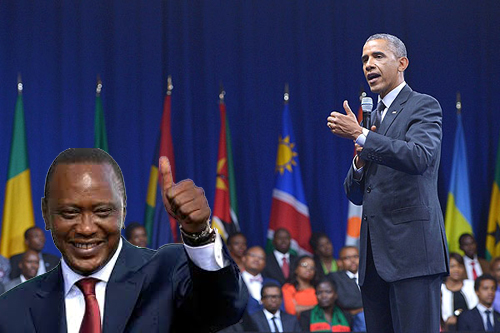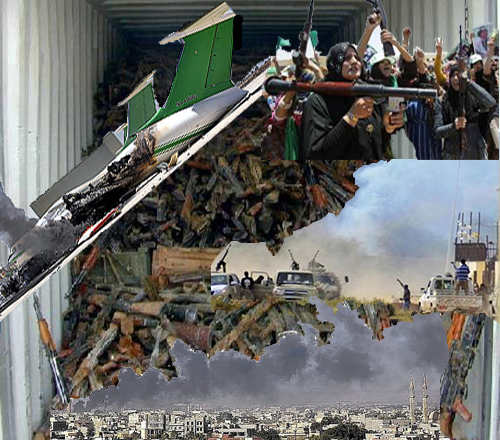 The largest ever gathering of African leaders starts today in Washington at the invitation of President Obama. A year ago this would have been unthinkable.
The largest ever gathering of African leaders starts today in Washington at the invitation of President Obama. A year ago this would have been unthinkable.
A year ago Obama would not have arranged this summit; his advisors would have considered it bad politics. But Obama is no longer playing to the vicious racism that has stymied him from Day One.
A year ago President Uhuru Kenyatta would not have been invited: he remains on trial for crimes against humanity at the World Court (ICC). Kenyatta arrived in Washington for the summit yesterday. His court case has faltered and Kenya has prospered.
The guest list at the White House is filled with despots and authoritarians including Equatorial Guinea’s Obiang and Uganda’s Museveni. But with a little help from the White House, their most serious critics are also being heard.
A year ago the Heads of the African Union (AU) states would have rejected a meeting that included a parallel gathering of their most intense critics. The White House encouraged this activist gathering, but also deftly declined to participate and that seems to have satisfied the African Mighty. That’s a diplomatic dosey doe of the most successful sort.
Times are changing, Obama is changing, and I think America is recalibrating. No African leader embodies these changes better than Egypt’s President el-Sisi.
The White House did not invite el-Sisi, yet in my estimation whatever immoralities or crimes he’s committed in his coup against the legitimately elected Muslim Brotherhood Mursi as president last year pale in comparison to Obiang’s or Museveni’s reigns of terror.
But the White House was following a careful script. El-Sisi had been ousted from the AU. Obiang and Museveni remain in good standing with the AU, whether they should or not.
When el-Sisi was reinstated several months ago, the White House then issued an invitation and El-Sisi immediately declined, but with diplomatic nicety sent his Prime Minister and closest confidant, Ibrahim Mehleb.
The only other heads of state not invited have all been ousted by the AU: Zimbabwe, Sudan, Eritrea and the Central African Republic.
America’s recalibration is good and bad. Obama’s administration is reembracing the old diplomat Henry Kissinger’s realpolitik: In contemporary terms you don’t cheer change at the expense of certain stability.
The Arab Spring has proved mostly a failure. In the long view of multiple decades or centuries it may have inched human rights forward, but today human rights in places like Egypt and Morocco and Kenya is more suppressed than before the Arab Spring.
What has improved is social stability and economic growth, and that is the stuff that realpolitik responds to.
America’s obsession with freedom and democracy is very good … for America. But perhaps not right now for Africa, and that’s the paradigm manifest in today’s African summit.
In the last decade, American investment and trade with Africa which had been supreme, has fallen below that of Europe’s and China’s. “The summit agenda is heavily focused on business and trade,” the Guardian’s Washington correspondent says.
China may worry Obama more than any African despot. The Guardian continues:
“China’s trade with Africa rose to $200bn last year – largely made up of Beijing’s imports of oil and minerals, and export of electronics and textiles – more than double the US… Twenty years ago trade between China and Africa was just $6bn.”
The “U.S. Summit Seeks to Play Catch-Up in Africa,” the Washington bureau chief of IPS says.
Egypt is essentially stable, today. So is Kenya. One is governed by a military authority, the other by a man indicted by the ICC for crimes against humanity.
But both countries are essential to U.S. security. Egypt’s current moderating role in the ongoing conflicts in the Mideast, and Kenya’s occupation of Somalia, represent irreplaceable components of American security.
The real world is not always a pretty one.
